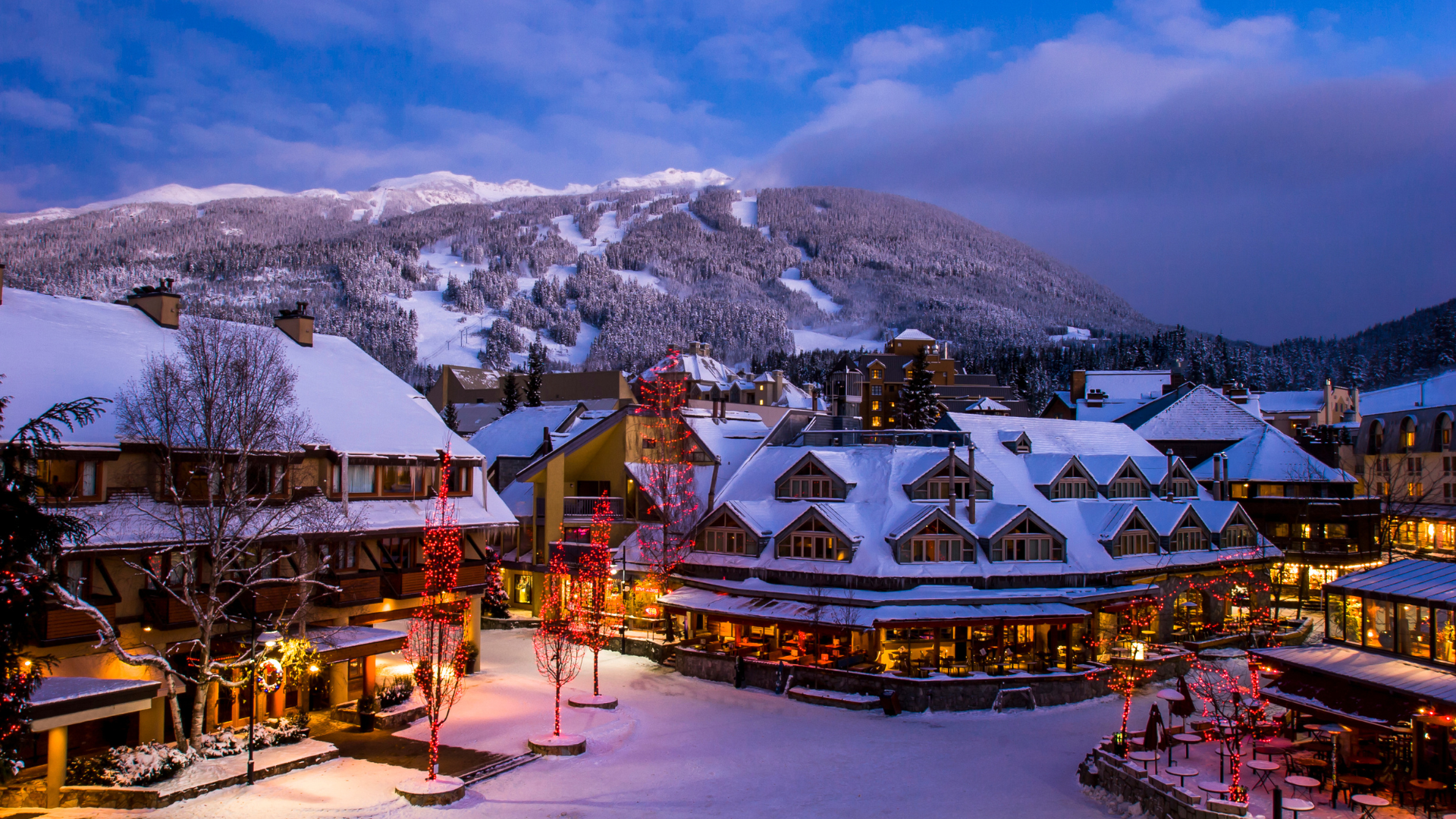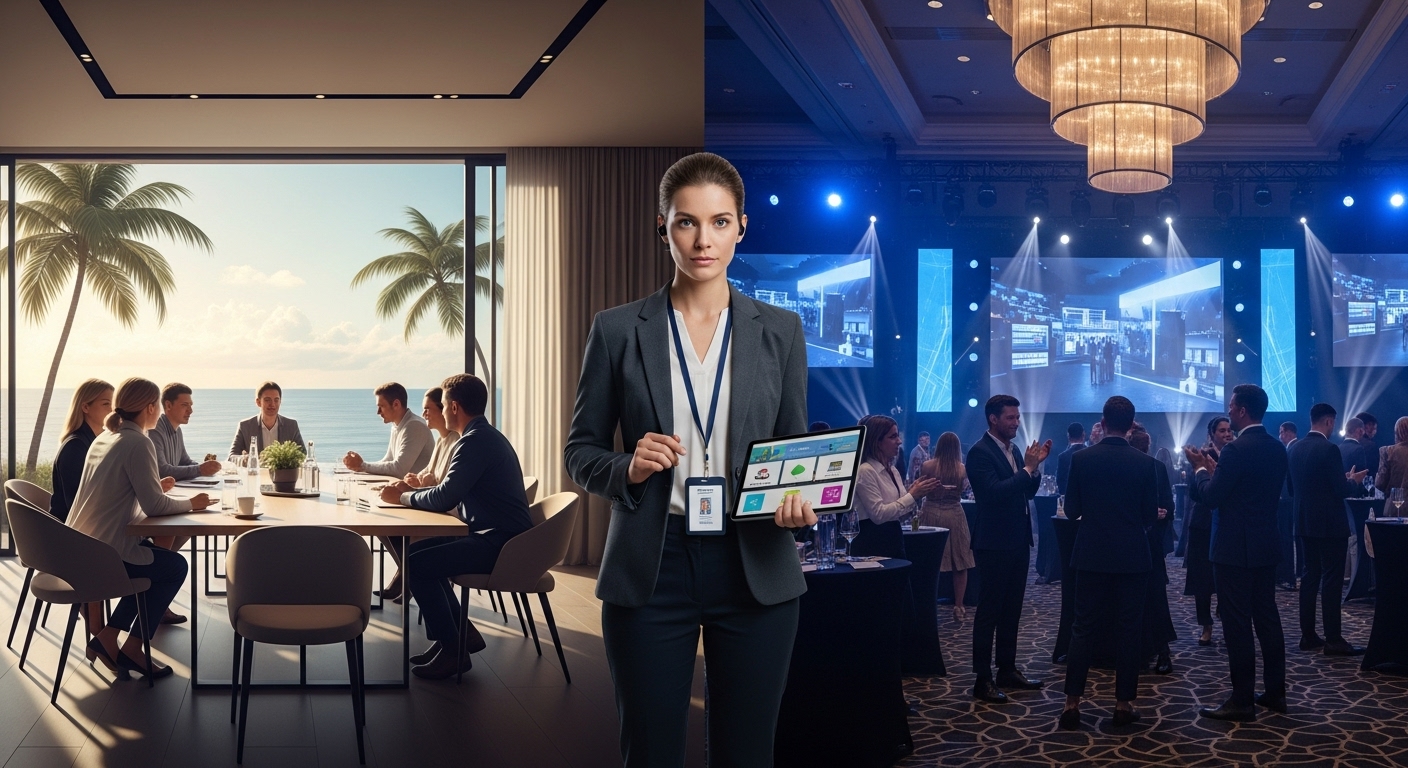What Are Immersive Experiences in Events?

Immersive experiences in events are those that aim to immerse attendees in an interactive and engaging environment, using innovative technologies and strategies to capture their senses and emotions. Unlike traditional events, these experiences allow participants to actively engage, creating a deeper and more memorable connection with the event. Technologies such as Virtual Reality (VR), Augmented Reality (AR), video mapping, and sensory activations are some of the methods used to create these unique environments.
Benefits of Immersive Experiences in Events
Greater Emotional Connection with the Audience
These experiences capture attendees' attention more effectively than traditional approaches. By engaging the senses, they generate an emotional connection that helps make the event's message more impactful and lasting.
Increased Information Retention
By combining visual, auditory, and in some cases tactile elements, immersive experiences facilitate the understanding and retention of the information presented. This is especially useful in educational and training contexts.
Encouragement of Active Participation
Immersive experiences invite attendees to interact with their environment, promoting active participation and often collecting valuable data on audience behavior and preferences.
Differentiation and Added Value
Offering immersive experiences at events provides a significant competitive advantage. Event organizers can stand out by creating memorable moments that attendees will share and remember.

Examples of Immersive Experiences in Events
Sensory Activations
These activations aim to stimulate attendees' senses to create a more complete experience. They can include specific scents, music, textures, and even tastes that complement the event theme and create an immersive environment.
Video Mapping
Video mapping is a technique that uses video projections to transform objects or surfaces into interactive screens. This technology allows for impressive visual effects, enveloping attendees in a visual narrative that can adapt to any type of event.
Virtual Reality (VR)
Virtual Reality allows users to immerse themselves in a completely different digital world. At events, VR is used to transport attendees to virtual scenarios that can range from product simulations to immersive brand experiences.
Augmented Reality (AR)
AR overlays digital information on the real world, offering an interactive experience that combines physical and digital elements. Mobile apps and specific devices allow attendees to interact with digital content in real-time, enhancing their event experience.
Gamification
Gamification introduces game elements into the event environment to encourage participation and engagement. Through challenges, points, and rewards, attendees are motivated to interact and learn in a fun and meaningful way.
Interactive Team Building
Team building events are being transformed with immersive experiences. Activities such as virtual competitions, live escape room challenges, and interactive simulations allow teams to learn and cooperate effectively while having fun.
Live Escape Room Experiences
Escape rooms have gained popularity in corporate and entertainment events. By integrating these live challenges, organizers can offer a problem-solving experience that promotes teamwork and critical thinking.
Holographic Presentations
Holographic presentations use advanced technology to create three-dimensional images that appear to float in the air. This technology is particularly effective for opening speeches and product presentations, capturing the audience’s attention in a unique way.
Multisensory Experiences
These experiences combine sound, light, smell, and, in some cases, tactil estimuli to create an environment that fully engages attendees. They can include everything from immersive concerts to dinners where each dish is accompanied by visual and auditory landscapes.

How to Implement Immersive Experiences in Your Events
Know Your Audience
It is crucial to tailor immersive experiences to the interests and needs of the attendees. Understanding their profile will allow for more relevant and effective interactions.
Define Clear Objectives
Before implementing an immersive experience, it is important to define what you want to achieve. Clear objectives help align the experiences with the theme and desired outcomes of the event.
Collaborate with Technology Experts
Immersive experiences require specialized knowledge. Collaborating with technology experts ensures that the implementations are effective and technically sound.
Evaluate Space and Budget
It is essential to consider the available space and budget before planning an immersive experience. Some technologies may require specific areas and significant investment, so it is important to plan accordingly.
Conclusion: The Future of Events is Immersive
Immersive experiences are redefining the way events are conducted. With their ability to capture attention, engage attendees, and create memorable moments, they are becoming an essential tool for event organizers looking to stand out. As technology continues to advance, the possibilities for creating immersive experiences will continue to expand, opening new doors for innovation and creativity in the events sector.
Frequently Asked Questions(FAQs)
What is an immersive experience?
An immersive experience is one that seeks to envelop participants in an interactive and multisensory environment, using technologies and strategies to capture their attention and emotions.
What are the benefits of including immersive experiences in an event?
Benefits include a greater emotional connection with the audience, increased information retention, encouragement of active participation, and significant differentiation for the event.
What types of technology are used in immersive experiences?
Technologies such as Virtual Reality (VR), Augmented Reality (AR), video mapping, holographic presentations, and sensory activations, among others, are used.
Is it expensive to implement immersive experiences in an event?
Costs can vary depending on the technology and scale of the experience. However, the investment is often justified by the high impact and added value these experiences provide.
How can I measure the success of an immersive experience at my event?
Success can be measured through satisfaction surveys, levels of participation, interaction data analysis, and the evaluation of objectives achieved versus expected.






